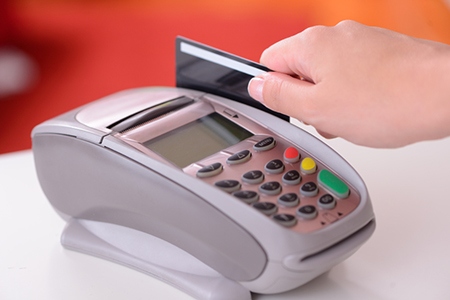 (TNS)—Making all of your purchases with a debit card is a good way to avoid spending more money than you have and racking up debt. But it’s not always the smartest way to pay. In fact, using a debit card at some places or in some instances can be dangerous.
(TNS)—Making all of your purchases with a debit card is a good way to avoid spending more money than you have and racking up debt. But it’s not always the smartest way to pay. In fact, using a debit card at some places or in some instances can be dangerous.
That’s because debit and credit card transactions are processed differently. And the protections aren’t quite the same.
Under federal law, your liability for unauthorized credit card transactions is capped at $50. You’re not responsible for any unauthorized transactions if your card number—rather than the card itself—is stolen, according to the Federal Trade Commission.
You’re not responsible for unauthorized debit card transactions if you report that your card is missing before someone uses it. Otherwise, you must report unauthorized charges within two days of learning that your card is lost or stolen to limit your liability to $50.
If you wait more than two days, you could be liable for up to $500 in unauthorized charges. After 60 days you could be on the hook for all unauthorized transactions made with your card, according to the FTC. Unlike with credit cards, you have to report unauthorized transactions with your debit card number within 60 days of your statement being sent to you to avoid liability.
So to protect the money in your bank account, here are three situations when you should think twice before using your debit card.
Online
Your chances of having your card information stolen is greater when you make purchases online because so many e-commerce sites have been compromised, says John Breyault, vice president of public policy, telecommunications and fraud at the National Consumers League. Plus, you could easily have viruses on your computer that can capture your information as you enter it online.
If a thief were to get your debit card information, you could contest any unauthorized charges. But that money typically isn’t available to you while the bank is investigating your fraud claim, Breyault says. With a credit card on the other hand, those funds would still be available while the card company investigates.
Hotels
When you check into a hotel it’s not certain what final amount you will owe when you check out will be, due to restaurant charges or other fees charged to your room. So hotels will place a hold on a certain dollar amount above the room rate, says Nessa Feddis, senior vice president of consumer protections and payments with the American Bankers Association.
If you pay with a debit card, you won’t have access to those funds temporarily, which could cause problems if don’t have sufficient money in your account or didn’t plan on spending more than the room rate, Feddis says.
Restaurants
Restaurants, like hotels, might authorize a higher dollar amount than your actual bill under the assumption that you’ll leave a tip, Feddis says. It could take a few days for the actual amount—rather than the hold amount—to appear on your account balance.
However, a bigger reason to avoid using a debit card at a restaurant is that you are letting it leave your sight while the server takes it away to be swiped, says Bryan Jardine, director of fraud prevention solutions at security provider Easy Solutions. During that time, your card information could easily be stolen.
© 2015 GOBankingRates.com, a ConsumerTrack web property.
Distributed by Tribune Content Agency, LLC.



